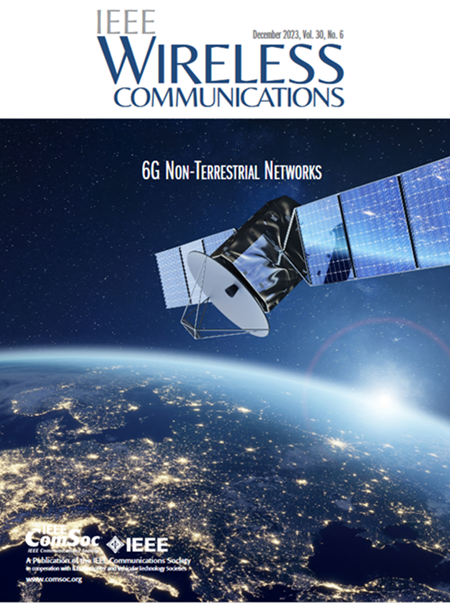6G URLLC的量子机器智能
IF 10.9
1区 计算机科学
Q1 COMPUTER SCIENCE, HARDWARE & ARCHITECTURE
引用次数: 5
摘要
沉浸式和任务关键型数据驱动应用,如虚拟或增强现实、触觉互联网、工业自动化和自主移动,正在为第六代(6G)网络中的超可靠和低延迟通信(URLLC)带来前所未有的挑战。机器智能接近深度学习、强化学习和联邦学习(FL),为确保大数据训练流上的6G URLLC提供新的范例。然而,机器学习能力的传统限制使得达到严格的6G URLLC要求具有挑战性。在本文中,我们利用量子资源的优势,如叠加、纠缠和量子并行,研究了6G URLLC的变分量子计算和量子机器学习(QML)的潜力。其基本思想是将量子机器智能与6G网络集成,以确保严格的6G URLLC要求。作为一个例子,我们展示了NP-hard URLLC任务卸载优化问题的量子近似优化算法。在无线网络中还采用了QML的变分量子计算,以提高机器智能的学习率,确保关键任务应用的学习最优性。考虑到量子辅助量子传输的安全性和隐私性问题以及计算资源开销,进一步研究了量子辅助量子传输的盲式和远程分布式量子计算。本文章由计算机程序翻译,如有差异,请以英文原文为准。
Quantum Machine Intelligence for 6G URLLC
Immersive and mission-critical data-driven applications, such as virtual or augmented reality, tactile Internet, industrial automation, and autonomous mobility, are creating unprecedented challenges for ultra-reliable and low-latency communication (URLLC) in the sixth generation (6G) networks. Machine intelligence approaches deep learning, reinforcement learning, and federated learning (FL), to provide new paradigms to ensure 6G URLLC on the stream of big data training. However, classical limitations of machine learning capabilities make it challenging to achieve stringent 6G URLLC requirements. In this article, we investigate the potential of variational quantum computing and quantum machine learning (QML) for 6G URLLC by utilizing the advantage of quantum resources, such as superposition, entanglement, and quantum parallelism. The underlying idea is to integrate quantum machine intelligence with 6G networks to ensure stringent 6G URLLC requirements. As an example, we demonstrate the quantum approximate optimization algorithm for NP-hard URLLC task offloading optimization problems. The variational quantum computation for QML is also adopted in wireless networks to enhance the learning rate of machine intelligence and ensure the learning optimality for mission-critical applications. Considering the security and privacy issues, as well as computational-resource overheads in FL, distributed quantum computation in blind and remote fashions is further investigated for quantum-assisted FL.
求助全文
通过发布文献求助,成功后即可免费获取论文全文。
去求助
来源期刊

IEEE Wireless Communications
工程技术-电信学
CiteScore
24.20
自引率
1.60%
发文量
183
审稿时长
6-12 weeks
期刊介绍:
IEEE Wireless Communications is tailored for professionals within the communications and networking communities. It addresses technical and policy issues associated with personalized, location-independent communications across various media and protocol layers. Encompassing both wired and wireless communications, the magazine explores the intersection of computing, the mobility of individuals, communicating devices, and personalized services.
Every issue of this interdisciplinary publication presents high-quality articles delving into the revolutionary technological advances in personal, location-independent communications, and computing. IEEE Wireless Communications provides an insightful platform for individuals engaged in these dynamic fields, offering in-depth coverage of significant developments in the realm of communication technology.
 求助内容:
求助内容: 应助结果提醒方式:
应助结果提醒方式:


